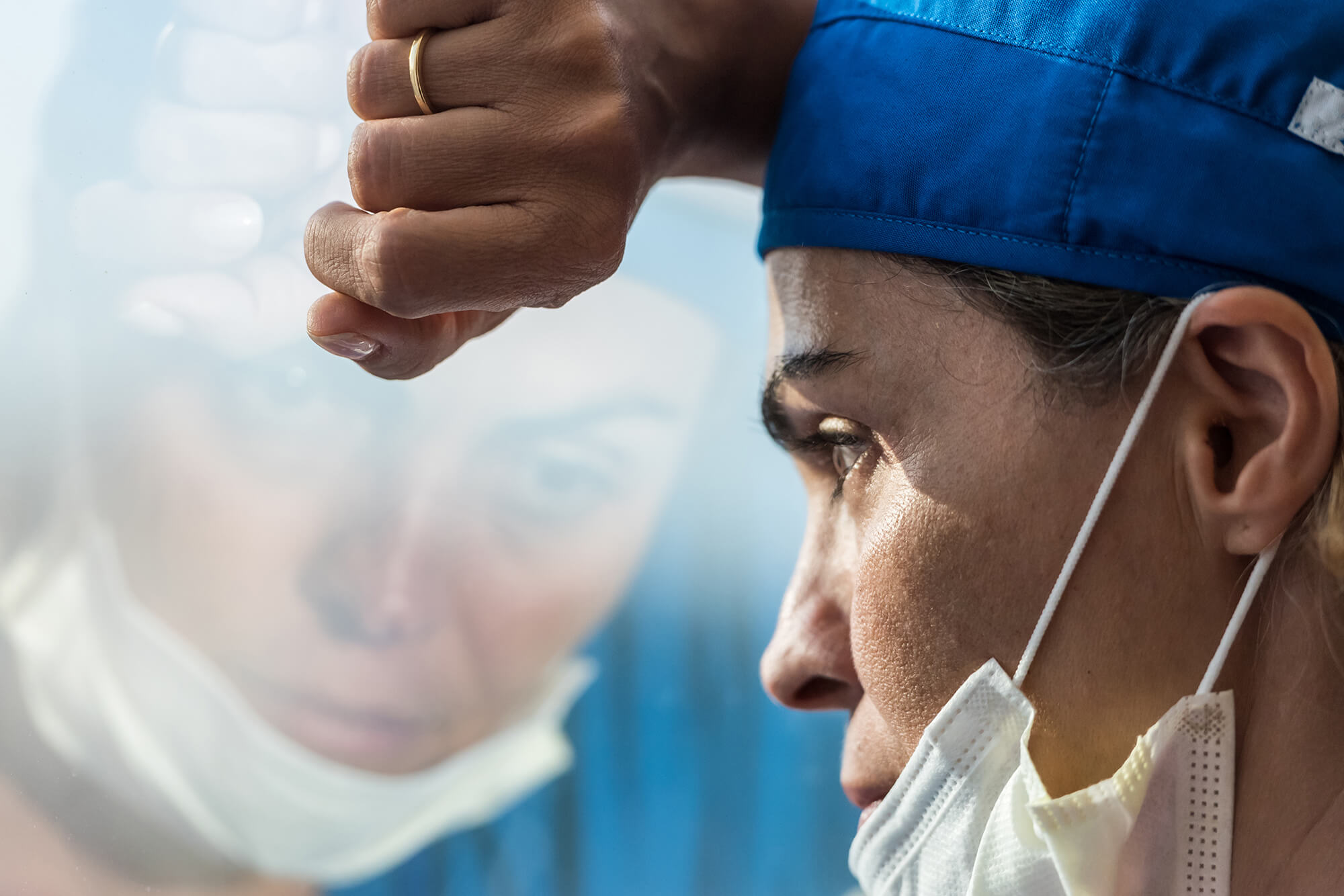One year has passed since a national emergency was declared due to the emergence of COVID-19: a year of wearing a mask (or 2); social distancing; working remotely or, as is the case for many healthcare professionals, alternatively; and working on the front lines of a global pandemic. Vaccine distributions are on the rise, but we must simultaneously continue to face the reality of new virus variants. The pandemic has brought an additional layer of fear and uncertainty to the oncology community. The National Cancer Institute shares that research highlights how cancer patients and survivors are disproportionally affected by COVID-19, ranging from an increased risk of poor outcomes (if infected) to new barriers and challenges in accessing oncology care.1
We can safely say that after a year of these challenges, we are feeling a little more than just burnt out. With religious holidays on the horizon, some patients may have the urge to take a break from social distancing to spend time with family and friends. So, what do we do? Let’s take a few minutes to talk about how to manage COVID-19 burnout a year into the pandemic.
Acknowledge the Burnout
The World Health Organization (WHO) defines pandemic fatigue as “a natural and expected reaction to sustained and unresolved adversity in people’s lives.”2 Simply put, it manifests as the demotivation to follow COVID-19 policies and guidelines along with feelings of complacency, alienation, and hopelessness. The WHO described this as something that will continue to evolve and change over time. Pandemic fatigue is affected by emotion, life experiences, culture, socioeconomic status, political environment, and much more.
Even those who have never heard the phrase pandemic fatigue may be noticing that many are hitting the “pandemic wall.” We are exhausted from talking/hearing/living all things COVID-19. However, the fact that this is normal does not necessarily mean that coping with it is easy; acknowledging the long-term emotional impact can often have an empowering effect. Understanding that what you and your patients are feeling is a normal stress response can be a powerful tool for coping.3
Continue to Assess the Risk
As vaccine rollouts continue across the country, continuous assessment of the risk of re-engaging with pre-COVID life activities will be important. Due to the unpredictability in vaccine availability, one’s comfort in expanding their COVID bubble will vary. However, we know continuing to live life while reducing risk of infection and virus transmission is possible. Although recommendations change frequently, one must do what is best for your own health situation. This may mean taking extra precautions. It also can mean navigating the challenge of differing opinions on COVID-19 safety precautions. Open communication with and within the medical team will be an important part of assessing current risk factors.
Practice Self-Compassion
We tend to be hardest on ourselves. Lowering expectations to put less pressure on ourselves and accepting that we cannot do it all, especially in the midst of a pandemic, is okay. This also relates to how we celebrate holidays with friends and family members. Virtual gatherings can bring loved ones together, but one should not feel pressured to organize a large Zoom event if they are not feeling up to it. Practicing self-compassion means being kind to yourself, especially during times of perceived pain and suffering. Research shows that self-compassion can be a protective factor against anxiety and other negative emotions.4
Prioritize Basic Needs
Practicing self-compassion also means taking care of yourself. Not everyone feels capable of self-care; however, keeping our basic needs in mind is important, including water, nutrition, sleep, and exercise. When our to-do lists are a mile long, we sometimes forget to get back to the basics of everyday life. Check in with yourself daily, ask yourself: Am I drinking enough water? When is the last time I ate a full meal? How much did I sleep last night? When did I last move my body? Performing daily check-ins can help us feel grounded and present in times of chaos and uncertainty. They can also help us remember what is most important.
Ask for Help
It’s not too late to ask for help. This could be as simple as calling up a friend or as involved as finding professional support through therapy or counseling. Recognizing your need for support is the first step to feeling less isolated or alone. We recognize that healthcare professionals are impacted differently by the pandemic; they are encountering unprecedented circumstances that may cause emotional distress, and posttraumatic stress. Finding support early on can reduce feelings of burnout while providing tools for coping with difficult emotions.
Sarah Paul is director of clinical programs at CancerCare.
Founded in 1944, CancerCare is the leading national organization providing free, professional support services and information to help people manage the emotional, practical and financial challenges of cancer. Our comprehensive services include case management, counseling and support groups over the phone, online and in-person, educational workshops, publications and financial and co-payment assistance. All CancerCare services are provided by master’s-prepared oncology social workers and world-leading cancer experts.
Last year, CancerCare offered over 30,000 hours of support, distributed over a million publications and welcomed 2.3 million visits to our websites. We also provided $48.7 million in financial assistance to over 29,000 people. The size and scope of CancerCarehas grown tremendously since 1944, but we have never wavered from our mission of providing help and hope to people affected by cancer.
References
- National Cancer Institute at the National Institutes of Health. COVID-19 Information for Cancer Researchers. Accessed March 16, 2021. https://www.cancer.gov/research/key-initiatives/covid-19
- World Health Organization Regional Office for Europe. Pandemic Fatigue: Reinvigorating the Public to Prevent COVID-19. Policy Framework for Supporting Pandemic Prevention and Management. Revised Version November 2020. Copenhagen: World Health Organization; 2020. Document Number: WHO/EURO:2020-1573-41324-56242
- Shedrick DE. 7 tips for managing stress, burnout, during the COVID-19 crisis. Clin Oncol News. Published June 5, 2020. Accessed March 16, 2021. https://www.clinicaloncology.com/COVID-19/Article/06-20/7-Tips-for-Managing-Stress-Burnout-During-the-COVID-19-Crisis/58390
- Sedighimornani N, Rimes KA, Verplanken B. Exploring relationships between mindfulness, self-compassion, and shame. Sage Open. 2012;9(3):2158244019866294. doi:10.1177/2158244019866294
